Visual perception improvement Adding Up to 5 Worksheets for Ages 4-8
5 filtered results
-
From - To
Discover engaging worksheets designed to enhance visual perception skills for children aged 4-8 while mastering addition concepts up to 5. Our "Adding Up to 5" worksheets provide vibrant visuals and interactive exercises that not only support mathematical understanding but also promote crucial visual processing abilities. Each worksheet is crafted to help young learners recognize patterns, differentiate shapes, and improve focus, laying a strong foundation for future learning. Perfect for classroom settings or at-home practice, these activities make learning fun and effective. Foster your child's cognitive development and mathematical confidence with these thoughtfully designed worksheets today!
Visual perception is a crucial skill for children ages 4-8, as it directly impacts their ability to recognize and interpret visual information, which is fundamental for learning. Improving visual perception helps young learners develop essential skills, such as identifying shapes, colors, and patterns, making sense of spatial relationships, and understanding how objects connect—all of which are vital for math and reading readiness.
When focusing on addition, particularly with sums up to 5, enhancing these visual skills plays a significant role. Children with strong visual perception can better manipulate objects and visualize the process of adding numbers, making abstract concepts more concrete and understandable. This becomes particularly important as they transition from hands-on activities to more abstract mathematical thinking in later grades.
Moreover, parents and teachers who prioritize visual perception activities contribute to overall cognitive development, fostering critical thinking and problem-solving skills. Interventions that cultivate these skills also promote confidence, reducing frustration that can stem from difficulties in understanding math concepts. By supporting improvements in visual perception, adults ensure that children are equipped with the foundational skills necessary for academic success and lifelong learning, making it vital for early education strategies.

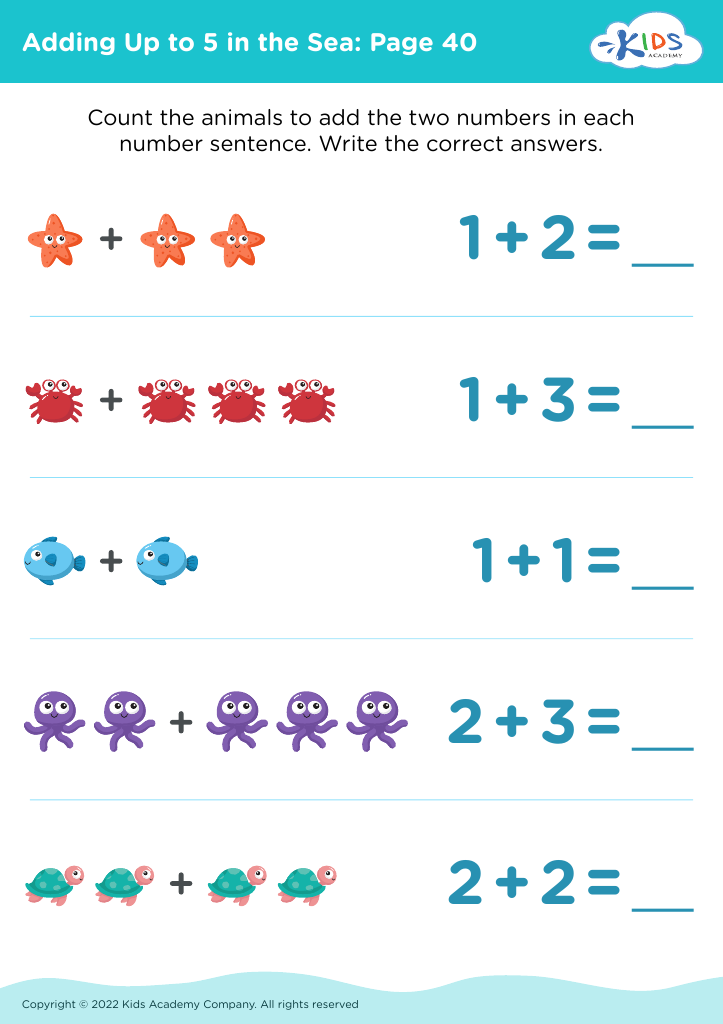
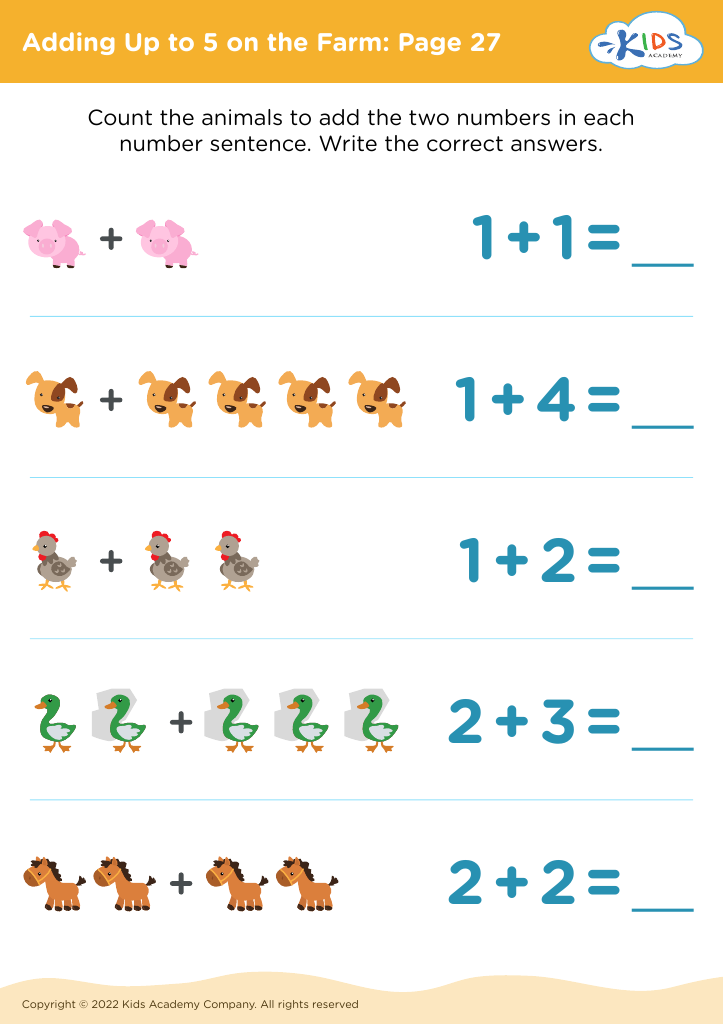
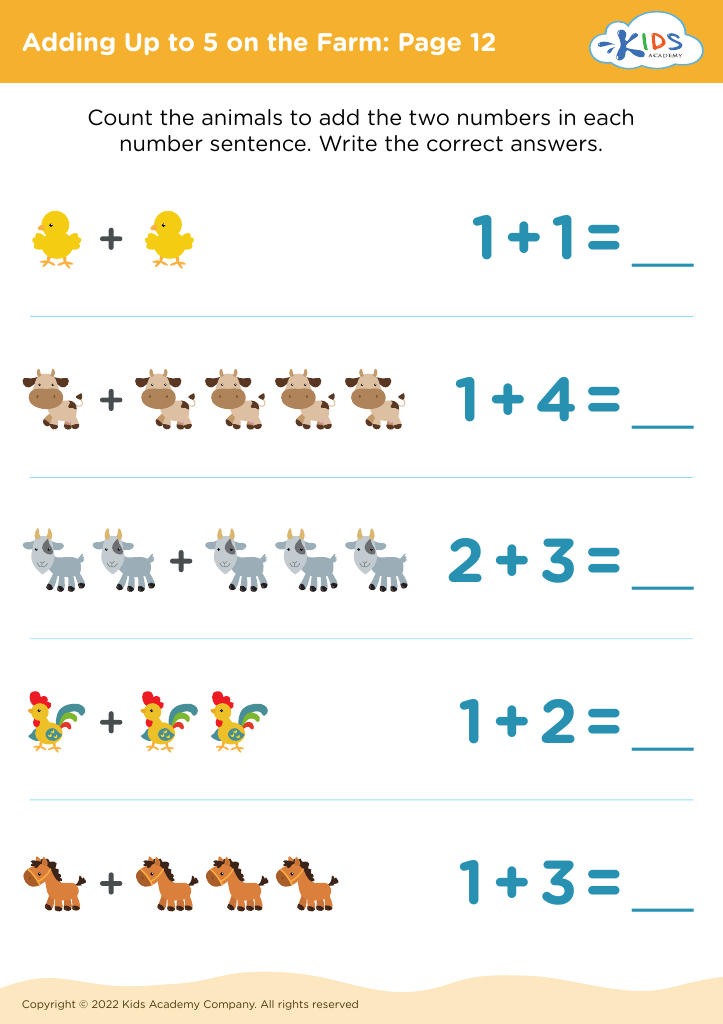
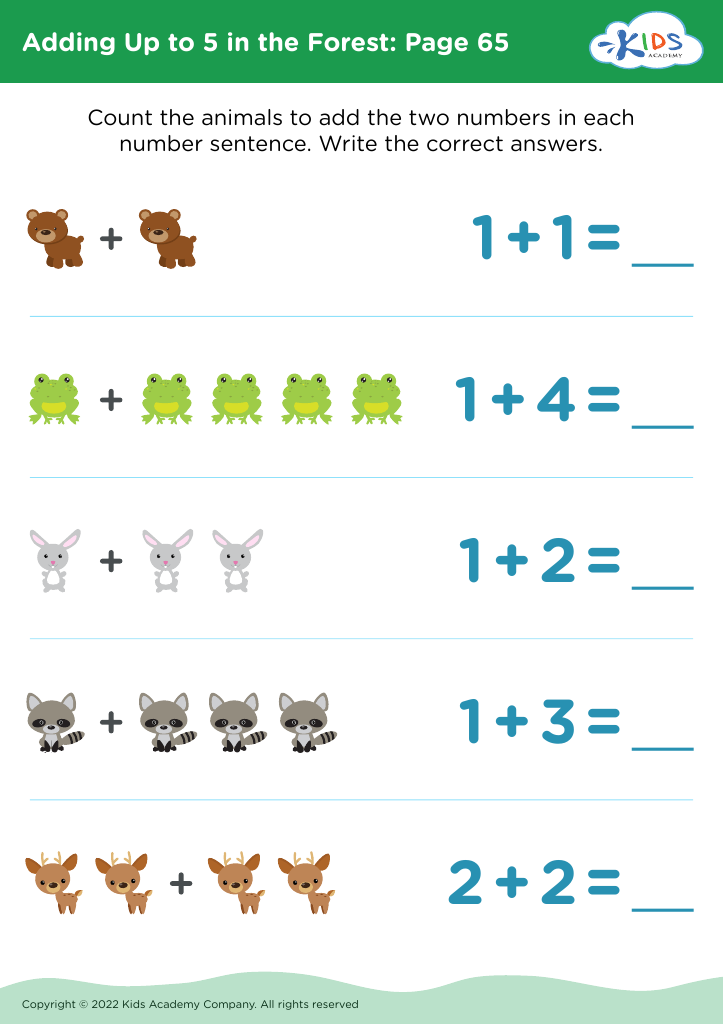
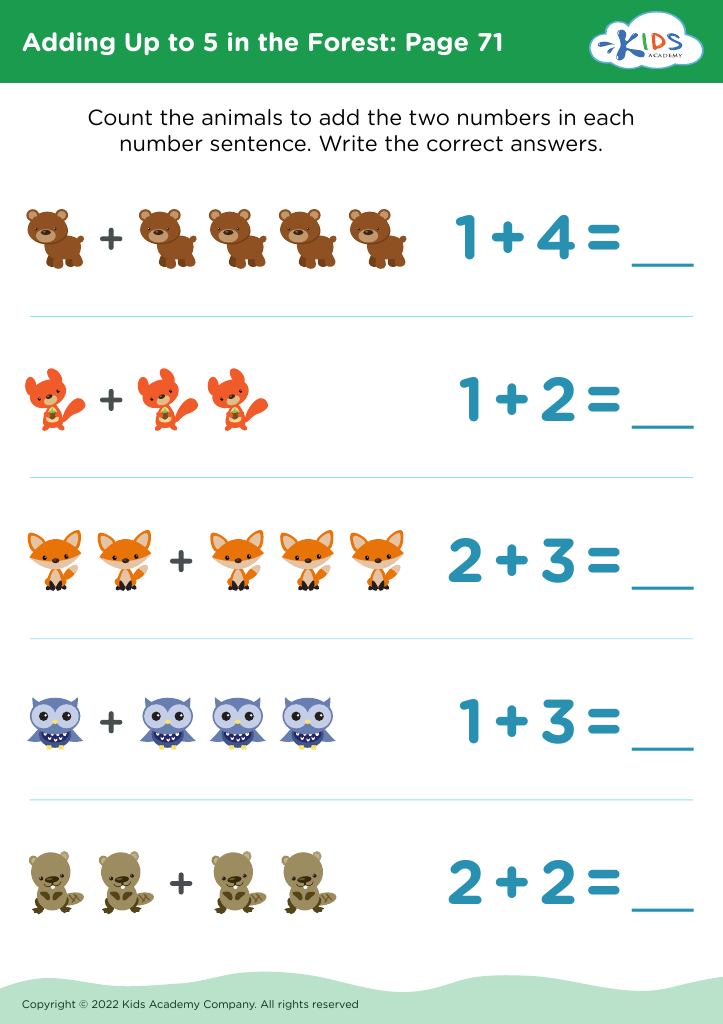






.jpg)









